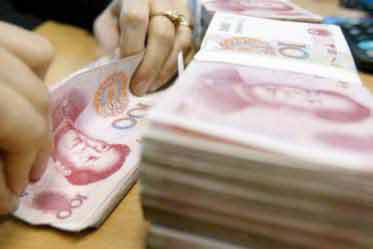- 0086(21)62671680
- 62671061
- sales@hyssgroup.com
- Language

The People's Bank of China (PBC) kept the yield on its benchmark three-month bills flat from a week earlier on Thursday, which is out of market expectations that the yield may rise after several tightening measures.
In its open-market operation Thursday, the central bank issued 50 billion yuan three-month bills, with the issuance rate at 1.3684 percent. Also, the bank also issued 40 billion yuan of 91-day sell repurchase agreements at 1.36 percent. Both the yields were kept flat last week.
After the central bank took several measures to tighten liquidity, the three-month bills performing flat were out of market expectations.
In the open-market operation Jan. 7, the PBC raised the yield by three basis points after keeping it unchanged for five months. Also, on Tuesday this week, the central bank also increased the yield on its one-year bills for the first time in about five months.
On Tuesday, the bank also announced banks must raise the deposit reserve requirement ratio by 0.5 percentage points, signaling that the government plans to tighten loans.
As a result, traders had expected another increase in yields Thursday.
But analysts pointed out that after a series of tightening measures, the central bank aims to ease predictions that China may tighten the monetary policy.
An unnamed stock trader said that the "moderately"loose monetary policy will not change, but after the banks raise the deposit reserve requirement ratio, the prediction that China may tighten the monetary policy is stronger, and the central bank did not expect this.
According to a rough estimation, the adjustment of the deposit reserve requirement ratio may freeze about 290 billion yuan, but the net capital reflow has reached 102 billion yuan this week, and the capital from due bills and repurchase agreements in the first quarter of 2010 may exceed 1 trillion yuan.
In addition to the counterpart of foreign exchange reserves, this adjustment would not impact the capital much, according to a China Business News report.
Wu Xiaoling, vice chairman of the Financial and Economic Affairs Committee of the National People's Congress, said that the previous policy to raise the deposit reserve requirement ratio is just a measure to improve the money supply of commercial banks, not to change monetary policy.
Li Zhiping, analyst from Pudong Development Bank, pointed out that the current adjustment does not mean a real change in the monetary policy and that the true change may be seen when the central bank raises interest rates, which is expected to happen in the third quarter.
But some analysts also said that the current trend of the yields of the bills rising has not changed, and in next week, the yields of one-year bills will further increase.
A report from Essence Securities believed that the central bank should consider enlarging the gap between the yields of one-year bills and three-month bills to influence commercial banks to buy more one-year bills.
An unnamed securities analyst said that due to "hot money"in the market, investors are cautious about where they put their money and may invest in short-term securities, so even if the banks do not raise the yields of the three-month bills, the market demand for them will not decline.